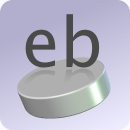The Funtoo Linux project has transitioned to "Hobby Mode" and this wiki is now read-only.
Difference between revisions of "Package:Wordpress"
Threesixes (talk | contribs) m (moar garbage) |
Threesixes (talk | contribs) m (put notices that wordpress has hidden admin levels assigned to the first registered account.) |
||
| Line 88: | Line 88: | ||
Point your browser @ http://localhost/wordpress/ | Point your browser @ http://localhost/wordpress/ | ||
Name your website, and make a default administrator password. | Name your website, and make a default administrator username, and password. | ||
{{important|Wordpress has hidden admin levels assigned to the first registered account. Make sure you leave it as a generic admin account.}} | |||
== Administration & Use == | == Administration & Use == | ||
Latest revision as of 08:57, November 21, 2014

Wordpress
We welcome improvements to this page. To edit this page, Create a Funtoo account. Then log in and then click here to edit this page. See our editing guidelines to becoming a wiki-editing pro.
Wordpress is a blog web-server-stack application content management system. Wordpress powers much of the internet, and can be converted into several other systems. Wordpress can be a blog, forum, bug tracker, social media platform, or even a web store. There are several plugins available, and it has a large community backing it.
Install
root # emerge wordpress
Nginx Server Configuration
Nginx does not respect the .htaccess files generated by wordpress. To manually insert url rewrite rules:
/etc/nginx/sites-available/localhost - nginx rewrite ruleslocation /wordpress {
try_files $uri $uri/ /wordpress/index.php?$args;
}
More information can be found here: http://wiki.nginx.org/WordPress
Permission Adjustments
if using nginx change permissions to nobody:nobody instead of apache:apache
Plugins, Themes & Images
Wordpress needs some directories to be run under the webserver or php-fpm user for uploading images, and installing themes & plugins.
Fix permissions to enable uploading content such as banners:
root # chown apache:apache /var/www/localhost/htdocs/wordpress/wp-content
Fix permissions to enable themes, and plugins:
root # chown -R apache:apache /var/www/localhost/htdocs/wordpress/wp-admin/ root # chown -R apache:apache /var/www/localhost/htdocs/wordpress/wp-includes/ root # chown -R apache:apache /var/www/localhost/htdocs/wordpress/wp-content/
Security
/var/www/localhost/htdocs/wordpress/wp-config.php contains plaintext sql database passwords. we should change the permissions to lock this file down.
root # chmod 640 /var/www/localhost/htdocs/wordpress/wp-config.php root # chown apache:apache /var/www/localhost/htdocs/wordpress/wp-config.php
MySQL
default "changeme" passwords are insecure, change them!
To create a database for wordpress to interact with:
root # mysql -u root -p
mysql> CREATE DATABASE IF NOT EXISTS `wordpress` DEFAULT CHARACTER SET `utf8` COLLATE `utf8_unicode_ci`; mysql> CREATE USER 'wordpress'@'localhost' IDENTIFIED BY 'changeme'; mysql> GRANT SELECT, INSERT, UPDATE, DELETE, CREATE, DROP, INDEX, ALTER ON `wordpress`.* TO 'wordpress'@'localhost' IDENTIFIED BY 'changeme'; mysql> \q
/var/www/localhost/htdocs/wordpress/wp-config.php (php source code) - insert database information// ** MySQL settings - You can get this info from your web host ** //
/** The name of the database for WordPress */
define('DB_NAME', 'wordpress');
/** MySQL database username */
define('DB_USER', 'wordpress');
/** MySQL database password */
define('DB_PASSWORD', 'changeme');
/** MySQL hostname */
define('DB_HOST', 'localhost');
/** Database Charset to use in creating database tables. */
define('DB_CHARSET', 'utf8');
/** The Database Collate type. Don't change this if in doubt. */
define('DB_COLLATE', '');
acquire your own salts and insert them into your configuration file. https://api.wordpress.org/secret-key/1.1/salt/
/var/www/localhost/htdocs/wordpress/wp-config.php (php source code) - add a saltdefine('AUTH_KEY', '5%#gO!G+miM;(Jt8U^12SAh');
define('SECURE_AUTH_KEY', 'hJ~Hi:(R/:^l$M;(Vfp:+04$A');
define('LOGGED_IN_KEY', 'f^%jl;[9~8],LA^Eq]-5*');
define('NONCE_KEY', '&IX,NkKM;M;(Jt(Jt8U^j;(m7');
define('AUTH_SALT', 'TX^29j/P7[q0GhM;(Jt8U^-ug&mh');
define('SECURE_AUTH_SALT', '<p@0$;jThph,2M6e8i<UAW=');
define('LOGGED_IN_SALT', 'O0TY<>%eIAs/=;O&7@LkhxduYhg6');
define('NONCE_SALT', 'VQ^-BR7YM;(Jt8U^D4ZRMY#[');
Database and database user are "wordpress" and passwords are what you set in your mysql database generation step. (changeme fields)
5 minute installer
Point your browser @ http://localhost/wordpress/
Name your website, and make a default administrator username, and password.
Wordpress has hidden admin levels assigned to the first registered account. Make sure you leave it as a generic admin account.
Administration & Use
Administer your WordPress @ http://localhost/wordpress/wp-admin/
Your shiny new blog is located @ http://localhost/wordpress/
Your new blogs rss feed is located @ http://localhost/wordpress/feed/
Suggested Themes
- Responsive
Suggested Plugins
- Add Meta Tags
- Disqus Comment System
- Google XML Sitemaps
- Share Buttons by AddToAny
- WooCommerce
- Wordfence Security
- YouTube widget responsive
Media